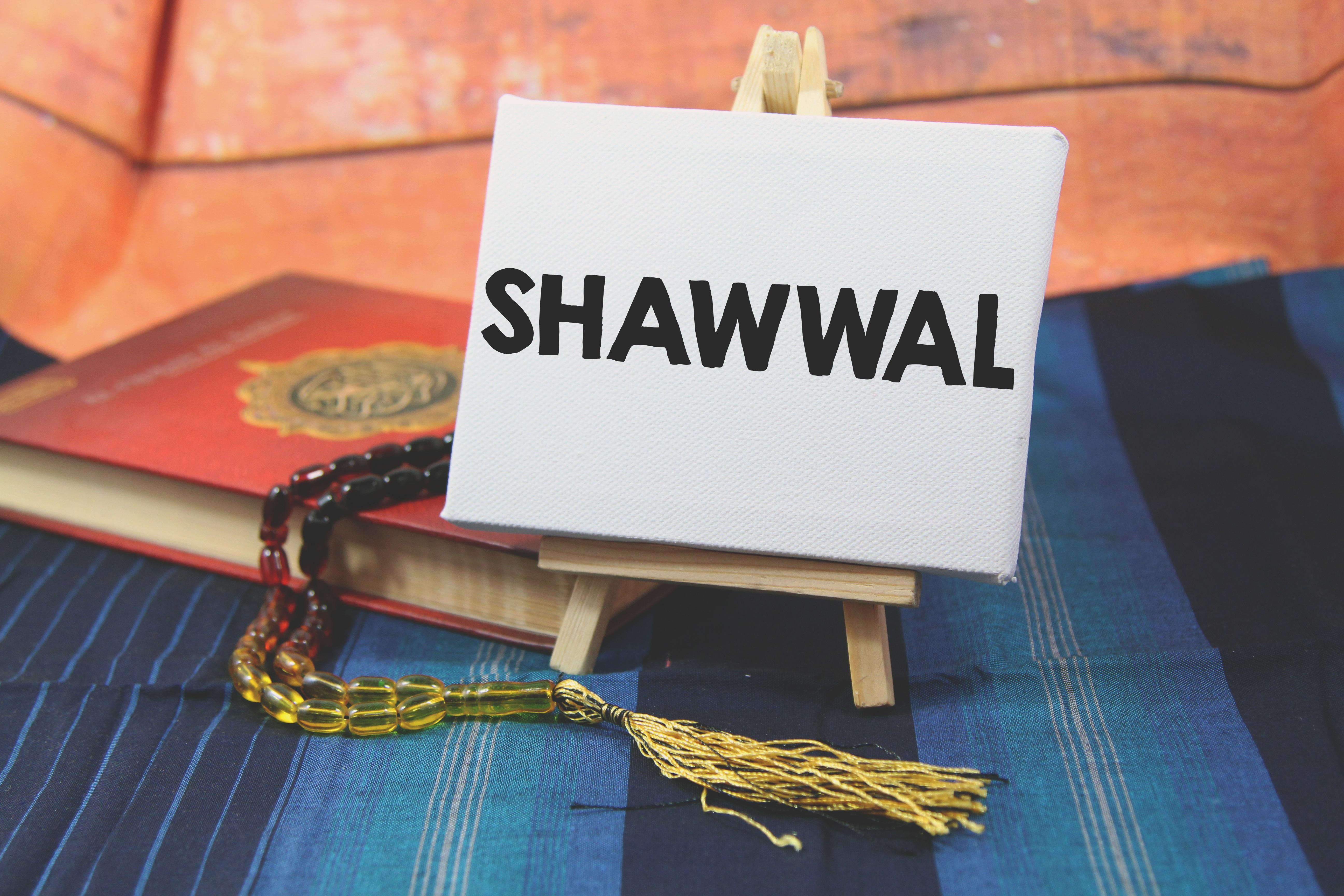The month of Shawwal immediately follows Ramadan, during which time Muslims around the world observe the 30-day long fast during daylight hours. Completing the Ramadan fast is equivalent to fasting for 10 months, while completing an additional six days of fasting in Shawwal is equal to a fast of two months – thus it is like completing an entire year of fasting.

The month of Shawwal immediately follows Ramadan, during which time Muslims around the world observe the 30-day long fast during daylight hours. Completing the Ramadan fast is equivalent to fasting for 10 months, while completing an additional six days of fasting in Shawwal is equal to a fast of two months – thus it is like completing an entire year of fasting.
“The fast of Ramadan is like observing 10 months of fasting. Fasting six days of Shawwal is like observing two months of fasting. This together is like fasting throughout the year.” (Sahih Ibn Khuzaymah (2115) and Sunan al-Nasa’i al-Kubra (2860))
Continuing the fast in Shawwal comes with great rewards and blessings, as well as making amends for any sins that we may have accumulated throughout the auspicious month of Ramadan. The fast in Shawwal is not intended to cover for any missed days of fasting in Ramadan (for that you will have to pay either Fidya or Kaffarah, whichever applies to your reasoning), but more so for any shortcomings we may have had in how we conducted ourselves throughout this time.
There are several schools of thought as to when Muslims should fast for six days of Shawwal, not all of which believe that the six days must be observed consecutively. Some prefer to observe the six days consecutively straight after Eid, as it is strictly prohibited for any Muslim to fast over any day of Eid, while others believe that any six days, consecutive or intermittent, of fasting will suffice.
Another way of observing the fast in Shawwal is for the fast to take place over three days in the middle of the month, Ayyam Al Bid. It is Sunnah for Muslims to fast on the 13th, 14th and 15th days of each Islamic month as it is believed that Allah (SWT) directed His followers to observe sawm on these days. In Shawwal, to complete the full six days of fasting, the additional three days are observed either directly before or after the fast over Ayyam Al Bid.
As well as continuing to fast for an additional six days in Shawwal, it is equally as important that we carry forward the good habits that we have formed over the course of Ramadan. This includes continuing our charitable deeds, both voluntary and obligatory, reciting the Holy Qur’an and praying to Allah (SWT).
Ramadan grants us the opportunity to grow closer to Allah (SWT), reaffirming our faith and increasing our intention to pray. Along with abstaining from food and water, the fast also demands that Muslims display no negative emotions and/or ill feelings towards others. This can and should be carried forward into Shawwal (and beyond), as it is good practice to show consideration for others.
Fasting in Shawwal is a sign of accepting the Ramadan fast and of Allah (SWT) accepting our worship. When you follow up one good deed with another of the same, it is regarded as a sign of the first good deed being accepted by Allah (SWT).
There is nothing greater than the blessings of forgiveness of sin. He has commanded that we give thanks for the blessings that come with the month of Ramadan and the opportunity to repent for our sins and to grow closer to Him.
To fast in Shawwal is to show our thanks and gratitude for Allah’s (SWT) blessing for the observance of sawm during Ramadan. The reward of completing the fast, worth the same as a full year, is great and should be sought by all Muslims who wish to strengthen their bond with Allah (SWT). The spiritual training that He has given us in Ramadan will allow us to carry forward the inner strength and self-discipline into the six-day fast of Shawwal.
Just as observing the fast is a privilege for Muslims, so too is giving to charity and spreading wealth across all those who are most in need. Through our charity, with the work carried out by our team of volunteers, you can donate your Zakat, Sadaqah Jariyah or any other general payment. The Muslim Aid team will greatly appreciate your generous donations that we will use to fund the worthy causes supported by us.
To make your donation, head to our donations page and give whatever you can right now. No matter how big or small your payment, you will earn rewards and blessings on top of those earned for completing the six days of fasting in Shawwal.
The Muslim Aid team are able to provide updates on the difference your generous donation makes to those who benefit from it, whether it is a widow who can provide for her children, a young boy who can go to school or a young girl who no longer has to live in fear because she has no safe place to call home.
We are a faith-based British international charity that provides help to people who are victims of natural disasters or conflict or suffering from poverty, hunger, disease, homelessness, injustice, deprivation or lack of skills and economic opportunities.
© Copyright 2024. Muslim Aid. All Rights Reserved.
Charity CIO No. 1176462
Serving humanity since 1985.


Your donation will provide help to people who are victims of natural disasters or conflict or suffering from poverty, hunger, disease, homelessness, injustice, deprivation or lack of skills and economic opportunities.
